第56章 CHAPTER I PRINCESS CINDERELLA(5)
`Prodigious!' said the Baronet. `You thought? And can the loss of forty toilettes leave you cold? Well, madam, I admire your fortitude.
And the state, too? As I left, the government was sitting, -- the new government, of which at least two members must be known to you by name: Sabra, who had, I believe, the benefit of being formed in your employment -- a footman, am I right? -- and our old friend the Chancellor, in something of a subaltern position. But in these convulsions the last shall be first, and the first last.'
`Sir John,' she said, with an air of perfect honesty, `I am sure you mean most kindly, but these matters have no interest for me.'
The Baronet was so utterly discountenanced that he hailed the appearance of his chaise with welcome, and, by way of saying something, proposed that they should walk back to meet it. So it was done; and he helped her in with courtesy, mounted to her side, and from various receptacles (for the chaise was most completely fitted out) produced fruits and truffled liver, beautiful white bread, and a bottle of delicate wine. With these he served her like a father, coaxing and praising her to fresh exertions; and during all that time, as though silenced by the laws of hospitality, he was not guilty of the shadow of a sneer. Indeed his kindness seemed so genuine that Seraphina was moved to gratitude.
`Sir John,' she said, `you hate me in your heart; why are you so kind to me?'
`Ah, my good lady,' said he, with no disclaimer of the accusation, `I have the honour to be much your husband's friend, and somewhat his admirer.'
`You!' she cried. `They told me you wrote cruelly of both of us.'
`Such was the strange path by which we grew acquainted,' said Sir John. `I had written, madam, with particular cruelty (since that shall be the phrase) of your fair self. Your husband set me at liberty, gave me a passport, ordered a carriage, and then, with the most boyish spirit, challenged me to fight. Knowing the nature of his married life, I thought the dash and loyalty he showed delightful. "Do not be afraid," says he;
"if I am killed, there is nobody to miss me." It appears you subsequently thought of that yourself. But I digress. I explained to him it was impossible that I could fight! "Not if I strike you?" says he. Very droll; I wish I could have put it in my book. However, I was conquered, took the young gentleman to my high favour, and tore up my bits of scandal on the spot.
That is one of the little favours, madam, that you owe your husband.'
Seraphina sat for some while in silence. She could bear to be misjudged without a pang by those whom she contemned; she had none of Otto's eagerness to be approved, but went her own way straight and head in air.
To Sir John, however, after what he had said, and as her husband's friend, she was prepared to stoop.
`What do you think of me?' she asked abruptly.
`I have told you already,' said Sir John: `I think you want another glass of my good wine.'
`Come,' she said, `this is unlike you. You are not wont to be afraid. You say that you admire my husband: in his name, be honest.'
`I admire your courage,' said the Baronet. `Beyond that, as you have guessed, and indeed said, our natures are not sympathetic.'
`You spoke of scandal,' pursued Seraphina. `Was the scandal great?'
`It was considerable,' said Sir John.
`And you believed it?' she demanded.
`O, madam,' said Sir John, `the question!'
`Thank you for that answer!' cried Seraphina. `And now here, I will tell you, upon my honour, upon my soul, in spite of all the scandal in this world, I am as true a wife as ever stood.'
`We should probably not agree upon a definition,' observed Sir John.